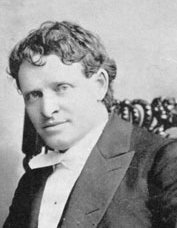A Quote by Matthew Arnold
Man errs not that he deems His welfare his true aim, He errs because he dreams The world does but exist that welfare to bestow.
Related Quotes
Therefore, if the earthly power errs, it shall be judged by the spiritual power ... but if the supreme spiritual power errs it can be judged only by God, and not by man ... Therefore we declare, state, define and pronounce that it is altogether necessary to salvation for every human creature to be subject to the Roman pontiff.
But Shakespeare knows what the sphinx thinks, if anybody does. His genius is penetrative as cold midwinter entering every room, and making warmth shiver in ague fits. I think Shakespeare never errs in his logical sequence in character. He surprises us, seems unnatural to us, but because we have been superficial observers; while genius will disclose those truths to which we are blind.
Let the watchwords of all our people be the old familiar watchwords of honesty, decency, fair-dealing, and commonsense."... "We must treat each man on his worth and merits as a man. We must see that each is given a square deal, because he is entitled to no more and should receive no less.""The welfare of each of us is dependent fundamentally upon the welfare of all of us.
General welfare is a general condition - maybe sound currency is general welfare, maybe markets, maybe judicial system, maybe a national defense, but this is specific welfare. This justifies the whole welfare state - the military industrial complex, the welfare to foreigners, the welfare state that imprisons our people and impoverishes our people and gives us our recession.
The welfare state destroys the market mechanisms - lessens free choice and willing exchange. Simultaneously creating unnatural specializations, it must, granted statism's premise, resort to welfarism; that is, it must assume the responsibility for the people's welfare: their employment, their old age, their income, and the like. As this is done, man loses his wholeness; he is dispossessed of responsibility for self, the very essence of his manhood. The more dependent he becomes, the less dependable!
He who has learnt to control his tongue has attained self-control in a great measure. When such a person speaks he will be heard with respect and attention. His words will be remembered, for they will be good and true. When one who is established in truth prays with a pure heart, then things he really needs come to him when they are really needed: he does not have to run after them. The man firmly established in truth gets the fruit of his actions without apparently doing anything. God, the source of all truth, supplies his needs and looks after his welfare.






































